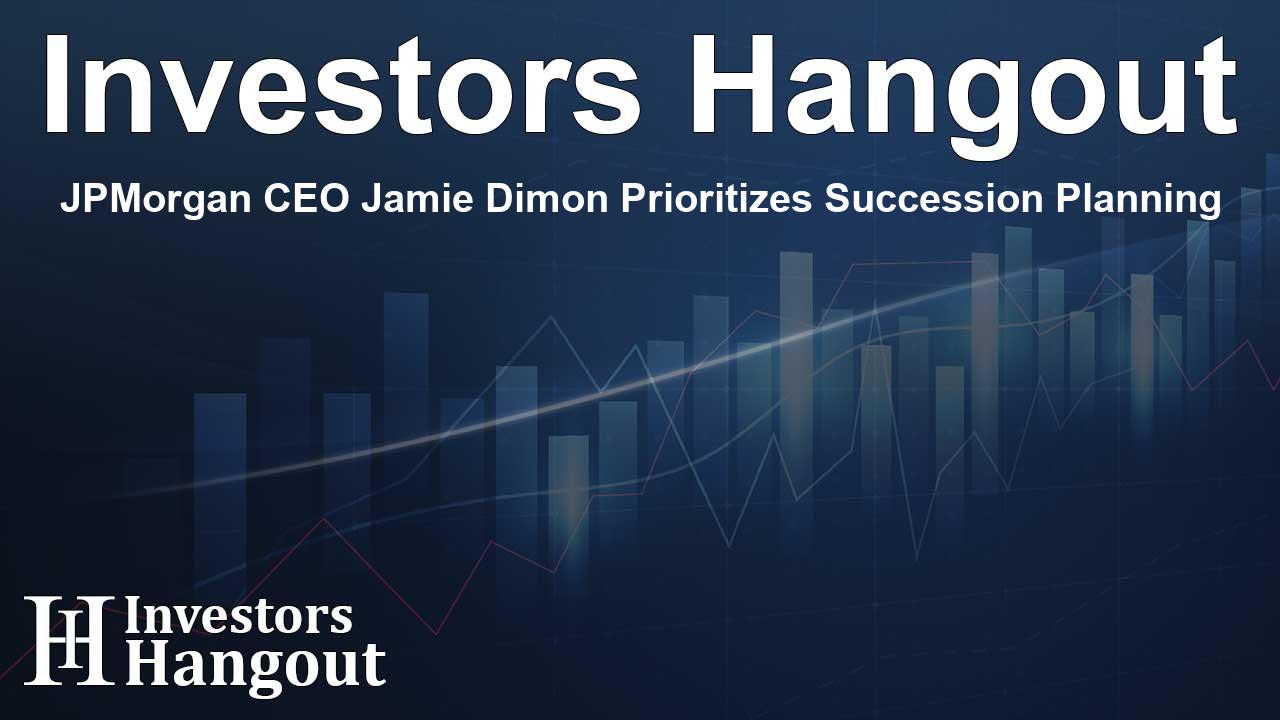JPMorgan CEO Jamie Dimon Prioritizes Succession Planning

Jamie Dimon Highlights the Importance of Succession Planning
In a recent statement, Jamie Dimon, the CEO of JPMorgan Chase (NYSE: JPM), emphasized that succession planning is one of his top priorities. As a significant figure in the finance industry, Dimon understands that the future leadership of the company is critical for its ongoing success and stability.
Qualified Leadership Candidates at JPMorgan Chase
During discussions at a conference aimed at pension funds and institutional investors, Dimon revealed that there is a pool of "extremely" qualified individuals within the organization who are ready to step up when the time comes. This assurance indicates that JPMorgan is not only focused on current performance but also on long-term sustainability past Dimon’s tenure.
The Future Without Jamie Dimon
While Dimon did not disclose a specific timeline for his retirement, he acknowledged that he and his team dedicate a considerable amount of time contemplating the company's future beyond his leadership. "We all want to get that exactly right," he affirmed, underscoring the careful planning involved in ensuring a seamless transition.
The Impact of Leadership Transition
The conversation around succession planning is crucial, especially in a financial institution like JPMorgan Chase, which influences global markets. A well-thought-out transition plan can mitigate uncertainties and maintain investor confidence. Dimon’s proactive approach reflects an understanding of the pivotal role that strong leadership plays in the banking sector's dynamics.
Creating a Legacy at JPMorgan Chase
Jamie Dimon has been a transformative leader, and his legacy will likely include a solidified plan for succession. With a commitment to nurturing talent within the organization, he aims to create a structure that supports continuous growth and adaptation in a rapidly changing financial environment.
Frequently Asked Questions
What is the main focus of Jamie Dimon regarding JPMorgan Chase?
Jamie Dimon is primarily focused on succession planning, ensuring that qualified individuals are prepared to lead after his tenure.
How does succession planning benefit JPMorgan Chase?
Succession planning helps maintain stability, investor confidence, and the continuity of the company’s strategy.
Are there identified candidates for leadership after Dimon?
Yes, Dimon mentioned that there are "extremely" qualified individuals within JPMorgan Chase who are ready to take over leadership roles.
Why is Dimon’s statement on succession planning important?
It emphasizes his commitment to the long-term success of the company and reassures investors about future leadership stability.
Will Jamie Dimon disclose his retirement timeline?
No, Dimon did not provide a specific timeline for his retirement, but he has acknowledged the importance of planning for it.
About Investors Hangout
Investors Hangout is a leading online stock forum for financial discussion and learning, offering a wide range of free tools and resources. It draws in traders of all levels, who exchange market knowledge, investigate trading tactics, and keep an eye on industry developments in real time. Featuring financial articles, stock message boards, quotes, charts, company profiles, and live news updates. Through cooperative learning and a wealth of informational resources, it helps users from novices creating their first portfolios to experts honing their techniques. Join Investors Hangout today: https://investorshangout.com/
Disclaimer: The content of this article is solely for general informational purposes only; it does not represent legal, financial, or investment advice. Investors Hangout does not offer financial advice; the author is not a licensed financial advisor. Consult a qualified advisor before making any financial or investment decisions based on this article. The author's interpretation of publicly available data shapes the opinions presented here; as a result, they should not be taken as advice to purchase, sell, or hold any securities mentioned or any other investments. The author does not guarantee the accuracy, completeness, or timeliness of any material, providing it "as is." Information and market conditions may change; past performance is not indicative of future outcomes. If any of the material offered here is inaccurate, please contact us for corrections.